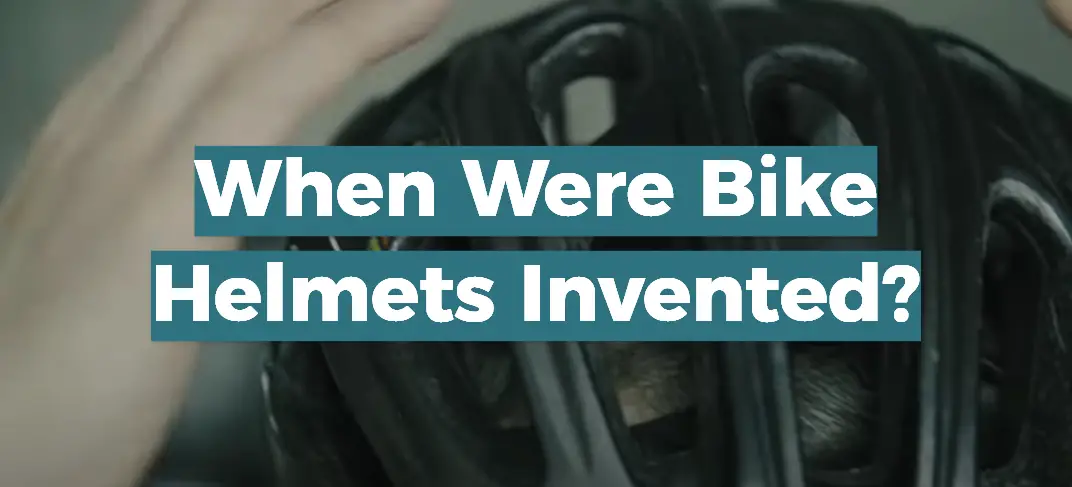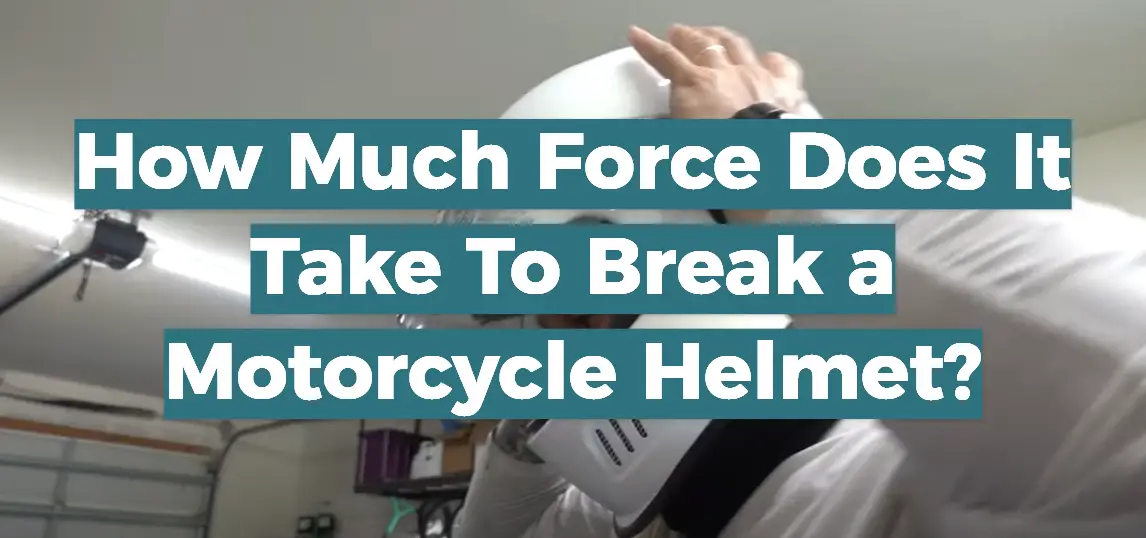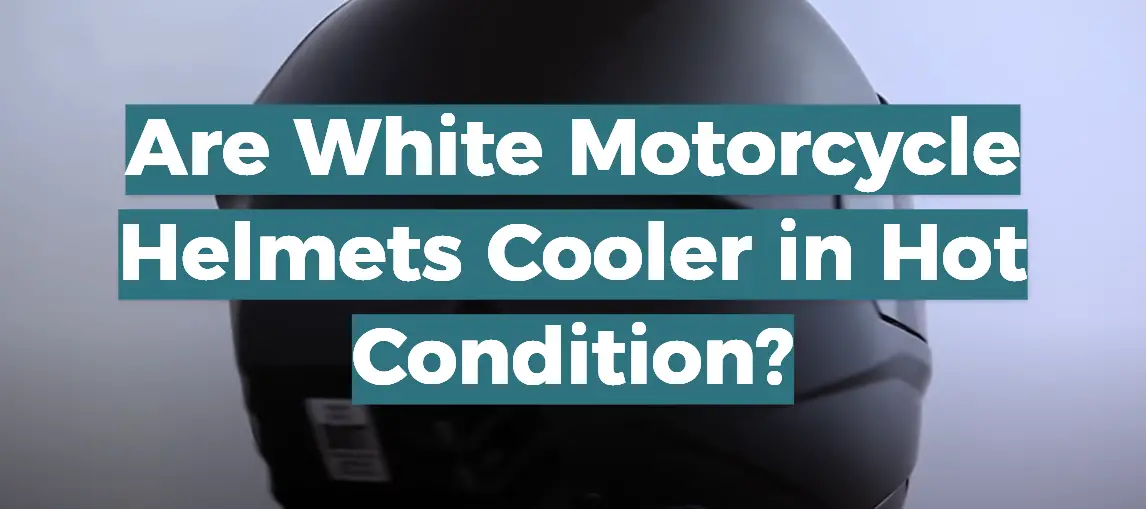Welcome to the motorcycle helmet law guide for Kentucky. This guide will provide answers to frequently asked questions and useful tips on whether or not Kentucky requires motorcyclists to wear helmets.
Table of Contents
What Is Kentucky’s Helmet Law?
In Kentucky, motorcyclists are required to wear a helmet anywhere they ride. The helmet must be secured with a chin strap and meet the standards set by the US Department of Transportation. It is important to note that if you are under 21 years old, it is illegal for you to ride without wearing a helmet in Kentucky. [3]
Kentucky’s General Rule for Motorcycle Helmet Use
In Kentucky, it is a general rule that anyone operating or riding on a motorcycle must wear protective headgear. The helmet must be securely fastened with a chin strap and meet the safety standards recognized by the Department of Vehicle Regulation. [3]
Are There Exceptions to Kentucky’s Helmet Law?
Yes, there are certain exceptions to Kentucky’s helmet law. For example, passengers in a sidecar and those older than 21 who have taken an approved motorcycle safety course do not need to wear helmets while riding. Furthermore, riders of three-wheeled motorcycles that are enclosed in cabins or equipped with seatbelts may also be exempt from wearing a helmet.
Finally, those who are at least 21 years of age and who have had health insurance covering motorcycle accidents for the last two years may also be excused from wearing a helmet while riding in Kentucky. It’s important to note that if you fit into any of these categories, you must still carry a valid proof of insurance while riding. [3]
Complying with Kentucky’s Insurance Exception
In Kentucky, there is an exception to the helmet law when it comes to insurance. The state does not require that you wear a helmet if you have certain types of insurance. This exception applies only to motorcyclists and moped riders who meet all of the following criteria:
- They are at least 21 years old.
- They have been licensed to operate a motorcycle or moped in Kentucky for at least two years.
- They carry full liability insurance (at least $20,000/$50,000) that covers the rider and their passengers while operating the vehicle. [3]

When Did Kentucky Repeal Its Helmet Law?
In 1998, Kentucky repealed its universal helmet law, which required motorcyclists of all ages to wear helmets when riding. The repeal replaced the universal requirement with a partial helmet law that only applies to riders under 21 years old. According to the National Highway Traffic Safety Administration (NHTSA), this means that adult riders over the age of 21 are no longer required to wear helmets while riding motorcycles in Kentucky.
However, it is important to note that even though the universal helmet law has been repealed, many motorcyclists still choose to wear helmets out of personal preference and for added safety protection. The NHTSA reports that wearing a helmet can reduce the risk of death by 37 percent and the risk of severe injury by 69 percent. [2]
Is Kentucky’s Helmet Law Constitutional?
The question of whether or not Kentucky’s helmet law is constitutional has been raised in the past. The answer, however, is a bit complicated.
In 2007, the state of Kentucky passed a law that requires all riders to wear a helmet while operating motorcycles on public roads and highways. This law was challenged by some riders who felt it violated their constitutional rights. In 2008, the Kentucky Supreme Court ruled that the helmet law was indeed constitutional and that riders must wear a helmet while riding on public roads and highways in order to be safe. [2]
Is Eye Protection Required for Motorcyclists in Kentucky?
No. Eye protection is not required for motorcyclists in Kentucky. This might surprise you, especially if you’re familiar with some other states that do have strict regulations on eye protection while riding a motorcycle. In fact, most states do not have laws requiring eye protection, but it’s still a good idea to wear it — and some cities do have regulations that require eye protection. [1]
What Is the Penalty for Operating a Without a Helmet in Kentucky?
In Kentucky, it is illegal to operate a motorcycle without wearing a helmet that meets the standards set by the state. If caught doing so, you may be subject to fines and/or points on your license. The fine for operating without a helmet in Kentucky can range from $20 to $100 per offense, although some counties may have higher fines. You may also receive 1-3 points on your driver’s license depending on the severity of the offense.
It is important to note that if you are caught operating without a helmet, the officer may issue a citation for additional offenses such as “reckless driving” or “failure to obey traffic control devices.” Depending on the circumstances, you may incur additional fines and points on your license. It is always best to obey all traffic laws and wear a helmet while operating a motorcycle in Kentucky. [1]
Kentucky Helmet Laws and Car Accident Compensation
If you’re a motorcyclist in Kentucky, it’s important to know the helmet laws and understand what compensation is available for injuries sustained in a car accident. Here we provide an overview of the safety regulations and how they can affect your car accident compensation.[1]
Comparative Negligence and Motorcycle Accidents
In Kentucky, the legal doctrine of comparative negligence applies to motorcycle accidents just like it does for other types of motor vehicle accidents. This means that a party involved in an accident may be found responsible for some damage or injury even when they were not completely at fault. The degree to which someone is held liable for damages depends on how much of the total fault can be attributed to him or her.
For example, if it is determined that a person was 30% liable for an accident involving their motorcycle and another vehicle, then their compensation may be reduced by 30%. If a victim of a motorcycle accident wishes to pursue legal action, they should speak to an experienced attorney who understands the nuances of Kentucky’s comparative negligence laws. [1]

Not Wearing a Helmet and Claiming Compensation
For riders in Kentucky, the lack of a state helmet law makes it more difficult to claim compensation after an accident. Although there are no laws requiring you to wear a helmet, wearing one could potentially help to reduce the severity of your injuries if you were involved in an accident caused by another person.
Without being able to demonstrate that you were wearing a helmet, it can be more difficult to show that another person was negligent in causing your injuries. [2]
Do Motorcycle Helmets Save Lives?
Yes, studies have shown that wearing a helmet while riding a motorcycle reduces the chances of serious injury or death by up to 40%. In Kentucky, all riders are required to wear a helmet when operating their motorcycles and both the rider and passenger must be properly secured in helmets approved by the Department of Transportation. [3]
Reasons to Always Wear a Helmet
No matter where you live, it’s always a good idea to wear a helmet when riding your bicycle. It can help protect you from serious head injuries if you fall or are involved in an accident. Here are some specific reasons why:
- Wearing a properly fitted helmet reduces the risk of head injury by up to 85%.
- A helmet helps to keep your face, eyes and teeth safe in the event of a crash.
- It can also help prevent neck and spine injuries by acting as a cushion that absorbs shock.
- Helmets are also designed to protect riders from UV exposure, heat exhaustion and wind chill.[3]
Enforcement of Kentucky’s Helmet Law
In Kentucky, enforcement of the helmet law is handled on a county-by-county basis. Generally speaking, most counties will issue citations or fines to riders who are pulled over without a helmet. Even so, there can be exceptions and variations depending on local laws and regulations.
Additionally, many counties within Kentucky do provide exemptions from the helmet law for reasons such as religious or medical reasons. To determine if you are eligible for an exemption, check with your county’s department of transportation. [2]
What You Need to Know About Helmet Laws for Children
In Kentucky, children under the age of 16 must wear a helmet when riding or operating any type of motor vehicle on public roads. It is important for parents and guardians to understand the requirements for helmets in order to ensure the safety of their children. [1]
Vehicles to Which the Motorcycle Helmet Laws Do Not Apply
If you are a motorcycle rider in Kentucky, there are certain vehicles to which the helmet laws do not apply. These include tractors, riding lawn mowers, and antique motorcycles that are over 25 years old. These vehicles must still adhere to any other safety regulations that may be applicable, however.
Tractors used for farming, such as those used for harvesting grain or hay, are exempt from the helmet law. However, any highway tractors used to transport equipment must still adhere to the helmet laws. [2]
What Is The Difference Between Certified And Non-Certified Helmets?
The difference between certified and non-certified helmets is significant. Certified helmets meet high standards for quality and safety, as set forth by the Department of Transportation (DOT). These standards include things like testing for impact protection, helmet fitment, and more. Non-certified helmets may not provide the same level of protection during a crash.
It’s important to remember that even certified helmets are not designed to protect against all types of head injuries. The most common type of head injury is an abrasion, or scrape, which is caused when a rider slides after a crash. In these cases, even the highest-quality helmet can only do so much and cannot prevent serious injury. [1]
Who Is Liable In A Motorcycle Accident?
When it comes to liability in a motorcycle accident, the person who is at fault will typically be held liable. This means that they will usually be responsible for any damages they incurred while operating their vehicle, such as medical expenses, property damage and lost wages.
Another factor that can determine liability is whether or not either driver was wearing a helmet at the time of the accident. If a motorcyclist is found to have been wearing a helmet, they may be seen as having taken reasonable precautions to ensure their safety. On the other hand, if either driver was not wearing a helmet and suffered injuries due to the accident, they may be held liable for any damages they incurred. [2]

Is Choosing Not To Wear A Helmet Considered Negligence?
No. Kentucky has a universal helmet law, which means all motorcyclists must wear helmets while operating their motorcycles. However, if you choose not to wear a helmet – legally or otherwise – it would not be considered negligent behavior on your part.
It is important to note that even though the state of Kentucky may not consider it negligent behavior to not wear a helmet, that does not mean it is the best decision. Helmets dramatically reduce the risk of serious injury or death in the event of an accident. Moreover, wearing a helmet can improve visibility and help you stay alert while riding your motorcycle. [1]
Are Helmets Effective In Preventing Injuries?
Yes, helmets are effective in preventing injuries and saving lives. In fact, according to the National Highway Traffic Safety Administration (NHTSA), wearing a helmet can reduce the risk of head injury by as much as 85%. Wearing a helmet also reduces the likelihood of suffering a severe brain injury or death if involved in an accident. [2]
Other Ways To Prevent Motorcycle Injuries
In addition to wearing a helmet, there are other ways to protect yourself when riding a motorcycle.
- Wear appropriate clothing and safety gear. This includes wearing bright colors so you can be easily seen by other drivers, as well as sturdy leather or fabric jackets and long pants that provide protection from abrasion in the case of an accident.
- Wear sturdy boots or shoes, preferably with non-skid soles.
- Make sure your bike is in good working order and that you have the proper lights and reflectors on it. For night riding, wear clothing or a helmet that has reflective properties.
- Avoid driving while impaired by drugs, alcohol, or fatigue.
- Always observe the speed limit and be aware of your surroundings.
- Avoid distractions like cell phones, loud music, etc., when riding. [3]

FAQ
Does the state of Kentucky have a motorcycle helmet law?
Yes, the state of Kentucky does have a motorcycle helmet law. According to KRS 189.572, all motorcycle and moped riders must wear helmets that meet the specifications of the U.S. Department of Transportation (DOT). Helmets must also have a shatter-resistant face shield or be equipped with safety glasses and goggles.
Which US states have no helmet law?
Nine US states have no helmet law: Iowa, Illinois, New Hampshire, Pennsylvania, Michigan, Florida, Louisiana, Connecticut and Colorado. Riders in these states are not required to wear helmets. However, it should be noted that most states still require all riders to possess a valid motorcycle license in order to operate a motorcycle or moped on public roads.
Does Tennessee have a helmet law?
Yes, Tennessee does have a motorcycle helmet law. According to the Tennessee Department of Motor Vehicles, all riders must wear a DOT-approved helmet that fits securely on their head and is equipped with either a shatter-resistant face shield or safety glasses/goggles. The helmet must also be free from any modifications or alterations that would affect its effectiveness.

What states have full helmet requirements for motorcyclists?
States with full helmet requirements for motorcyclists include: Arkansas, Alabama, California, Georgia, Hawaii, Indiana, Kentucky, Maine, Maryland, Massachusetts, Mississippi, Missouri, Nebraska, Nevada New York , North Carolina , Oregon , South Carolina , Tennessee , Vermont , Virginia and Washington. In these states all riders are required to wear a DOT-approved helmet that fits securely on their head and is equipped with either a shatter-resistant face shield or safety glasses/goggles.
Which US state has the most bikers?
Texas is the US state with the most bikers, according to a report by the Insurance Information Institute. As of 2019, it had an estimated 1.57 million registered motorcycles. The next most popular states for motorcycle riders are California (1.12 million), Florida (803,000), North Carolina (590,000) and Pennsylvania (500,000).
Useful Video: Kentucky’s Motorcycle Helmet Law
Conclusion
Overall, it is important to know the laws in your state when it comes to motorcycle helmet usage. In Kentucky, helmets are only required for those riders under the age of 21, and those riding as a passenger must also wear a helmet. It is recommended that all riders in Kentucky wear a helmet whenever they take their bikes out on the road regardless of the law, as it can help protect them in the event of an accident. Additionally, riders must be aware that other states may have different rules and regulations when it comes to helmets, so they should check those laws before traveling. With these tips in mind, all motorcycle enthusiasts can enjoy the open road with peace of mind!
References:
- https://trumanlaw.com/blog/are-motorcycle-helmets-required-in-kentucky/
- https://www.garycjohnson.com/are-helmets-required-for-motorcyclists-by-law-in-kentucky/
- https://www.mccoyandsparks.com/blog/kentucky-motorcycle-helmet-laws/






Leave a Reply